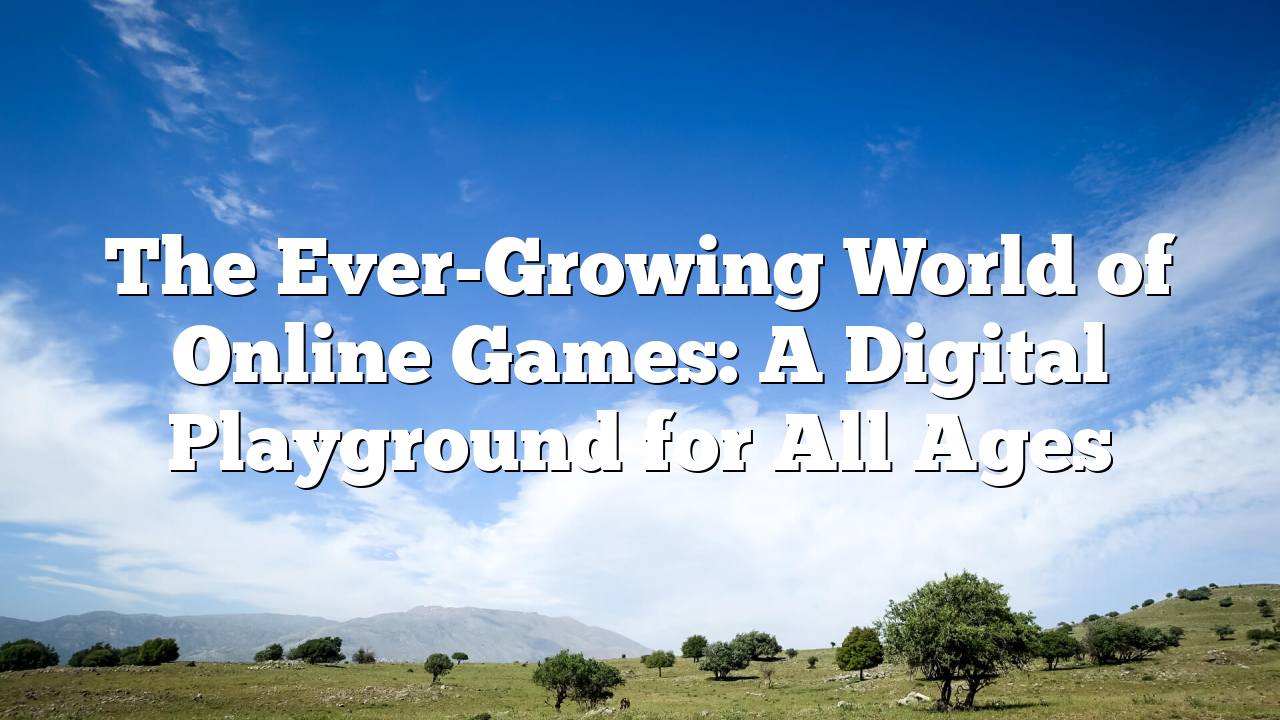Introduction
In recent years, online games have revolutionized the way people play and interact in the digital age. No longer confined to physical consoles or solo play, online games offer immersive experiences, real-time interaction, and a global community of players. From casual mobile games to massive multiplayer online role-playing games (MMORPGs), the online gaming industry has become one of the most dynamic and profitable entertainment sectors in the world.
The Evolution of Online Gaming
Online gaming began modestly with simple text-based games in the 1970s and has since grown into a multi-billion-dollar industry. Advancements in internet technology, cloud computing, and graphics capabilities have allowed for the development of complex and visually stunning virtual worlds. Platforms like Steam, PlayStation Network, Xbox Live, and mobile app stores have enabled easy access to thousands of games for players of all skill levels.
Types of Online Games
- MMORPGs (Massively Multiplayer Online Role-Playing Games): Games like World of Warcraft and Final Fantasy XIV immerse players in expansive universes where they can create characters, complete quests, and interact with others in real-time.
- Battle Royale Games: Titles like Fortnite, PUBG, and Call of Duty: Warzone pit dozens or even hundreds of players against each other in last-man-standing scenarios.
- MOBA (Multiplayer Online Battle Arena): Games such as League of Legends and Dota 2 involve strategic team battles with a focus on coordination and skill.
- Casual and Mobile Games: From puzzle games like Candy Crush to real-time multiplayer games like Clash of Clans, mobile gaming offers accessible fun on the go.
- Simulation and Sandbox Games: Minecraft, Roblox, and The Sims Online allow players to build, explore, and create in shared virtual spaces.
Benefits of Online Gaming
- Social Interaction: Many online games encourage teamwork and communication, fostering friendships and social bonds across borders.
- Cognitive Skills: Strategic thinking, problem-solving, and quick decision-making are all enhanced through gameplay.
- Entertainment and Relaxation: For many, online PBOWIN games serve as a form of escapism and a way to unwind.
- Competitive Opportunities: The rise of eSports has turned gaming into a viable professional path, with tournaments offering large prize pools and global recognition.
Challenges and Concerns
Despite its many benefits, online gaming also poses challenges:
- Addiction: Excessive gaming can lead to addiction and negatively affect personal and academic life.
- Cybersecurity: Players are at risk of scams, hacking, and online harassment.
- In-Game Purchases: Many free-to-play games monetize through microtransactions, which can lead to significant spending, especially among younger audiences.
The Future of Online Gaming
The future of online gaming looks promising, with innovations such as virtual reality (VR), augmented reality (AR), and artificial intelligence (AI) shaping the next generation of games. The metaverse concept also hints at more immersive, interconnected gaming experiences. With 5G technology enabling faster and more reliable connections, gamers can expect smoother, more responsive gameplay across all devices.
Conclusion
Online games have transformed from simple pastimes to powerful digital ecosystems that connect, entertain, and challenge players worldwide. As technology continues to evolve, so too will the possibilities within the online gaming world. Whether you’re a casual player or a competitive gamer, the online realm offers endless opportunities for fun, growth, and connection.
